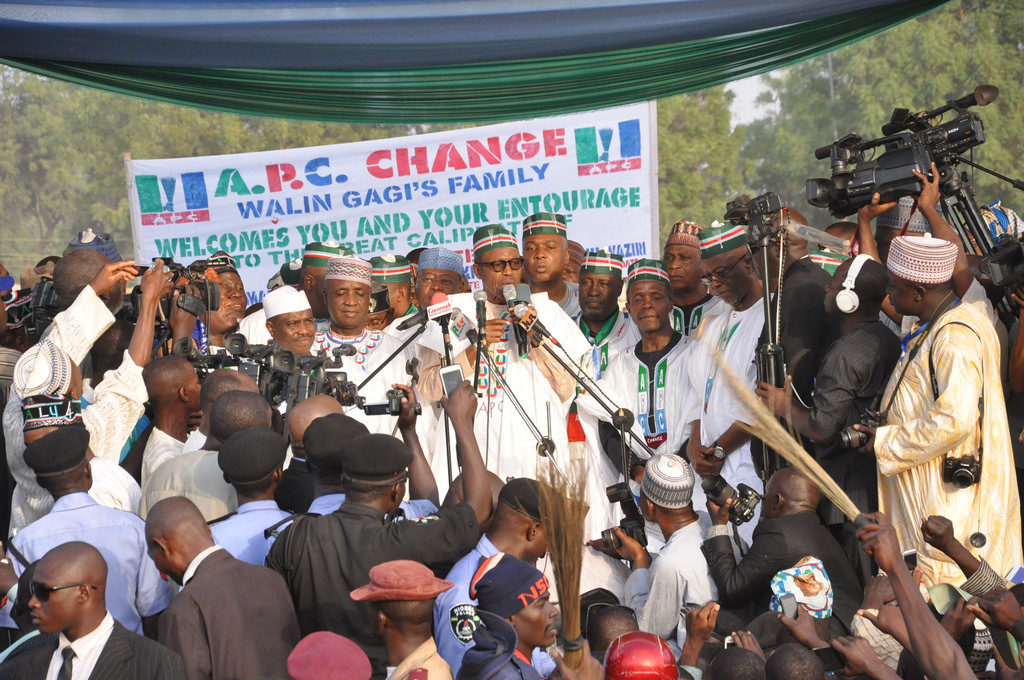“In this campaign, where does change begin?”
October 26th, 2016 Nigerians voted for change in the most recent election, but as Emmanuel Olutokun, 23, a Correspondent from Lagos in Nigeria writes, change has to come from both the leadership and the people.
Nigerians voted for change in the most recent election, but as Emmanuel Olutokun, 23, a Correspondent from Lagos in Nigeria writes, change has to come from both the leadership and the people.
Nigeria’s present administration rode into power on the mantra of change. Many Nigerians did buy into it because the insight was apt, but more importantly Nigerians were in dire need of change.
But barely 16 months into power it seems this mantra has turned against them, as the only change the people believe they have experienced is a downward slide and an overburdened standard of living.
While some critics are of the opinion that the current situation is mainly an administrative failure, others hold firm that the administration of President Muhammadu Buhari is just a child born in a turbulent time, claiming that there is a global economic crunch which includes Nigeria. A recent report from the National Bureau of Statistics reveals that the Gross Domestic Product in real terms declined by 2.06 per cent at the close of the second quarter of 2016. This implies that for the first time in 20 years, the Nigerian economy has plunged into a recession.
The Nigerian economy is presently in a comatose state. A heightened brouhaha is seeing various multinationals daily suspending or closing down their companies due to the free fall of the naira against the US dollar, and many companies in the private sector quietly laying off hundreds of their staff.
I believe the government is developing innovative ways to combat this menace and providing sustainable solutions to the economic crunch the country is experiencing.
As one of the ways to salvage this situation, the federal government has initiated a national re-orientation campaign tagged ‘Change Begins With Me’. The campaign was set up to primarily entrench the values of accountability, integrity and inculcate positive attitudinal change amongst Nigerians. It is expected to trigger positive change that will boost Nigeria’s image, enable the country to gain acceptability and command respect in the comity of nations.
According to the Minister for Information and Culture, “The campaign is not a replication of the War Against Indiscipline which the Buhari-led administration initiated in 1983 but that it would achieve the same goal using a different mean”. Noting that what is wrong with Nigeria is not limited to the elite, the political class or the civil service, it states rather the change we want must address all issues and target every strata.
An objective look at these initiatives in a relation to the present economic condition of Nigeria provides two different perspective. First is a deeply thought out and well-crafted declaration of incompetency on the part of the ruling party. One would recall that during the campaign season there was a lot of promises and ‘we will do this’, ‘we will do that’ if only you bring us into the helm of affairs, but a cursory look at those promises prove that most of them are yet to see the light of day. Top amongst them is the provision of three million jobs in the first year in office.
A Nigerian columnist puts succinctly “Change does not begin with the average Nigerian. No, it begins with those who promised us ‘change a year ago’.” She makes the point that before Nigerians accept the new initiative, there should be some display of integrity by the government and not some intellectual manipulation.
The second perspective is an admonition and a truth that change cannot be accomplished in isolation but requires a joint, mutual and harmonious effort. It needs a re-orientation in that change is essentially achieved if it goes through a bottom-top approach, quelling the perception that the government would perform magic overnight.
According to the president of Nigeria, “the campaign is all about the need for us to see change not merely in terms of our economic, social progress but in terms of our personal behaviour on how we conduct ourselves, engage our neighbours and how we relate with the larger society.”
I strongly believe that change begins at both levels, for while the government is trying to educate and sensitise the populace on the need to lead a responsible life which would one way or another impact the progress of the nation, those in government should also live up to expectations and be an ardent doer of what they preach.
photo credit: boellstiftung Wahlkampf in Nigeria 2015 via photopin (license)
…………………………………………………………………………………………………………………
About me: I am a brand enthusiast, writer and a passionate believer in the strength of the African youths as a change agent.
I am the 2014 award recipient of the ADVAN Future Leader in Marketing and a 2016 Ashoka ChangeMaker Scholar.
…………………………………………………………………………………………………………………
Opinions expressed in this article are those of the author and do not necessarily represent the views of the Commonwealth Youth Programme. Articles are published in a spirit of dialogue, respect and understanding. If you disagree, why not submit a response?
To learn more about becoming a Commonwealth Correspondent please visit: http://www.yourcommonwealth.org/submit-articles/
…………………………………………………………………………………………………………………






